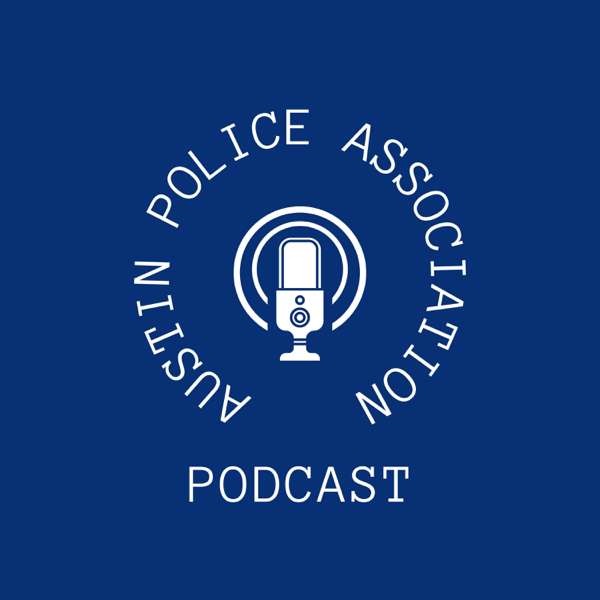This episode of EMS One-Stop With Rob Lawrence is brought to you by Lexipol, the experts in policy, training, wellness support and grants assistance for first responders and government leaders. To learn more, visit lexipol.com.
This edition of EMS One-Stop was recorded in New Orleans at the 2023 EMS World Expo. Host Rob Lawrence is joined by a range of guests who discuss the sessions they presented and the latest developments in clinical medicine.
Alexia Jobson, director of public relations at REMSA, discusses top tips for dealing with the media, and she then interviews media pre-con student Katherine Robillard.
Peter Antevy, MD, describes his conference session, titled “Five protocol changes you're too afraid to make.”
Brian Maloney of Plum EMS, in Pennsylvania, talks culture of safety, and lights and sirens reduction (and their results within the NEMSQA L&S reduction program).
Doug Wolfberg, Esq., of Page, Wolfberg & Wirth, steps in to discuss leadership lessons from the Beatles and his new book – "Beatles FAB but True."
The episode concludes with veteran EMS podcasters Chris and Anne Monterra, who offer tips on the art of podcasting.
TOP QUOTES FROM THIS EPISODE
“‘No comment is a comment!’ So you really want to avoid that as part of your media strategy and work to develop some transparent and honest information when those tough questions come.” — Alexia Jobson
“Anything that you say to a reporter is considered on the record and can be used in a news story.” — Alexia Jobson
“Top tips for going on camera: You want to make sure that they are knowledgeable about what they are going to be talking about, you want them to be a willing participant and able to re-frame and be positive about the content they are going to cover.” — Alexia Jobson
“It's important for you to just spend a little time looking inside your organization, recognize those important stories that you want to share, and then make sure that you commit some time and resources to building those relationships with your audiences ... having that positive relationship in place will go a long way. And it's also important as a profession that we work together to kind of raise the profile of out of hospital healthcare and EMS.”— Alexia Jobson
“Getting out the door, our shoot time is the No. 1 thing that can decrease our response times. It's not driving lights and sirens; it's not driving recklessly or speeding or not obeying the laws ... it's getting out that door quick from the time of dispatch to the time our truck's pulling out of the garage.” — Brian Maloney
“When we first started looking at the use of lights and sirens during transport to the hospital, which is right there, that increases our chance of getting in a wreck threefold and so it's very dangerous. When we first started it, we were at 26% of the time using lights and sirens during transport; we're down to almost 2%, for transport to the hospital. For response to calls, we were about 46-48% of the time using lights and sirens; we’re down to 7% of the time now.” — Brian Maloney
“Antibiotics for sepsis, so a lot of people are fearful of giving antibiotics, and why? Because the hospital says we need to have a culture, a blood culture. Turns out that's not true. If the patient's hypotensive, they're fixing to die, as they say. And we in Palm Beach County can give the antibiotics within 12 minutes of the 911 call. And our own data shows that the hospital is giving antibiotics at 120 minutes. That's a 10-fold difference in that. So, antibiotics for sepsis are, I think, a major item.” — Dr. Peter Antevy
“There's a story about how the Beatles had a drummer for a couple of years before Ringo. He wasn't quite the right fit for that band. He's a good drummer. But when they got Ringo in, they took off, right? So, in EMS, we tend to think if somebody has a pulse and a patch, let's hire them or let's bring them in. But we need the right people.” — Doug Wolfberg
“Recognize your own limitations, I tell a story about how the Beatles sort of came on hard times when their manager died, but weren't quite wise enough to know what they didn't know. They thought ‘we can manage ourselves,’ and so it’s to also recognize your limitations and get the skills that you need, if you don't possess them yourself, with your team.” — Doug Wolfberg
EPISODE CONTENTS
01:15 – Media management with Alexia Jobson (REMSA)
09:22 – Alexia Jobson interviews Katherine Robillard (LA Office of EMS)
11:37 – Brian Maloney (Plum EMS) talks culture of safety and lights and sirens reduction
20:15 – Dr. Peter Antevy on the five protocol changes you're too afraid to make
23:54 – Doug Wolfberg Esq. (Page, Wolfberg & Wirth) on leadership lessons from the Beatles
28:13 – Chris and Anne Monterra on the art of podcasting
ABOUT OUR GUESTS
Alexia Jobson REMSA
Alexia Bratiotis Jobson is the director of public relations and serves the organization by expanding opportunities for engagement, promotion, communication and relationship-building. She has more than two decades of business and communications experience. Prior to joining REMSA Health, Alexia worked as a senior account director with KPS3, where she managed REMSA’s client account, as well as accounts related to industrial real estate and higher education. She held communications-related positions with Renown Health and the Nevada Museum of Art. She holds an Accreditation in Public Relations (APR). This certification asserts professional competence, high ethical standards and mastery of progressive public relations industry practices. She is a Nationally Registered Emergency Medical Technician and is a graduate of the University of Nevada, Reno’s Reynold’s School of Journalism. She serves as the immediate past president of the board of directors for Western Industrial Nevada (WIN), Chair of the Public Relations Committee of AIMHI and chair of the American Ambulance Association Communications Committee.
Dr. Peter Antevy
Peter M. Antevy, MD. is a pediatric emergency medicine (EM) physician practicing in-hospital emergency medical care at Joe DiMaggio Children’s Hospital, a level I trauma and tertiary care center in South Florida. Board-certified in pediatrics, emergency medicine and the complex subspecialty of EMS, he is also the founder and chief medical officer of Handtevy – Pediatric Emergency Standards, Inc.; and he serves as the medical director for Davie Fire-Rescue, Coral Springs-Parkland Fire Rescue, Southwest Ranches Fire Rescue and United Medical Transport, all in South Florida. Dr. Antevy also serves as associate medical director for several other agencies, including Palm Beach County, Florida, and he is also the longstanding medical director for two highly regarded paramedic training programs as well as several mobile integrated healthcare (MIHC) programs in greater Broward County, Florida.
Brian Maloney
Brian Maloney has been working in EMS for over 24 years as a practitioner, educator and leader. His EMS career began while attending the University of Pittsburgh, where he obtained his paramedic certification and bachelor’s degree in emergency medicine. Later, he continued his education and achieved his Master of Science degree from Carlow University. He has spent most of his career working in the field and had the opportunity to teach with the Center for Emergency Medicine and the University of Pittsburgh. Currently, he is the director of operations of Plum EMS, where he has been for the past 5 years. His love and appreciation for the EMS profession run deep, and he continuously strives to help make it that much better.
Doug Wolfberg, Esq.
Doug Wolfberg has been a well-known national EMS leader for decades. He is an EMS attorney and consultant, and a founding partner of Page, Wolfberg & Wirth. He has served as an EMS practitioner and has held positions at the county, regional, statewide and federal levels in his EMS career prior to becoming an attorney. He has written hundreds of articles and has been one of the most highly rated presenters at EMS conferences throughout the U.S. He earned his law degree magna cum laude from Widener University School of Law and holds an undergraduate degree from Penn State University. Doug also serves as an adjunct professor of law at Commonwealth Law School and as an adjunct professor at the University of Pittsburgh.
Chris Montera
Christopher Montera has more than 34 years of experience in paramedic services, public health, and the fire service. He is the director of State and Federal Programs for ESO and the former chief executive officer at Eagle County Health Service District and holds a master’s degree in health leadership. Chris is serving as the National EMS Museum Treasurer for 2023.
Anne Montera
Anne Montera received a master’s degree in health leadership from Western Governors University and a BSN from Bethel College. She has over 20 years of nursing experience in public health, labor and delivery, patient safety/quality improvement, and EMS coordination in urban and rural hospitals and community settings, including the use of telemedicine. In her previous role as the senior VP of quality for Ready Responders, she worked to research, develop and implement quality matrix to demonstrate program cost savings and health impact. She was also the executive director for the Central Mountains RETAC, supporting a 6-county EMS and trauma region in Colorado. She is the co-creator and public health partner for the first National Community Paramedic Pilot Program in rural Eagle, Colorado. She received the State of Colorado EMS Region of the year in 2019 and Colorado Nightingale Luminary Award for Innovation work on the Colorado community paramedic program in 2011.
ADDITIONAL RESOURCES
Team-driven improvement in the use of lights and sirens – Plum EMS use cases demonstrate when the risk of using L&S is lower than the risk of delaying a lifesaving intervention
RATE AND REVIEW THE EMS ONE-STOP PODCAST
Enjoying the show? Please take a moment to rate and review us on Apple Podcasts. Contact the EMS One-Stop team at editor@EMS1.com to share ideas, suggestions and feedback.

 Our TOPPODCAST Picks
Our TOPPODCAST Picks  Stay Connected
Stay Connected







